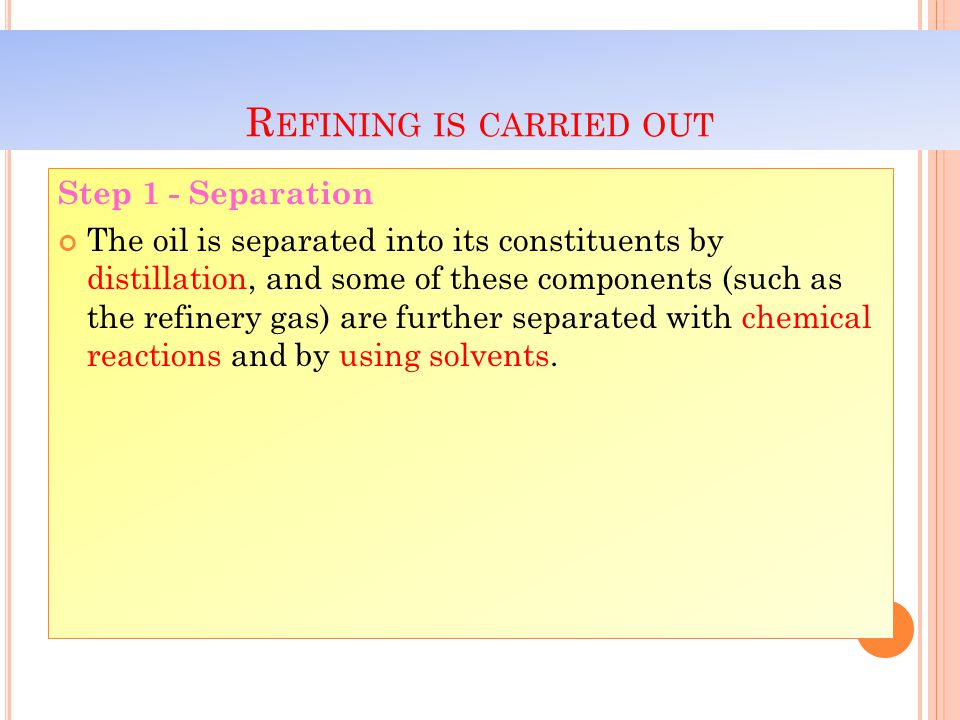Currently, researchers are hoping to alleviate the US’s addiction to oil by remodeling sawdust and wooden chips into bio-oil. This thick black liquid may very effectively turn out to be an environmentally friendly substitute for the vast majority of our current petroleum products.
 Bio-oil may be produced by utilizing virtually all organic materials, together with agricultural and forest wastes like corn stalks and chunks of bark mulch. The process of adjusting the uncooked biomass into bio-oil produces a product that is straightforward and secure to transport and will be refined to yield high worth fuels and chemicals.
Bio-oil may be produced by utilizing virtually all organic materials, together with agricultural and forest wastes like corn stalks and chunks of bark mulch. The process of adjusting the uncooked biomass into bio-oil produces a product that is straightforward and secure to transport and will be refined to yield high worth fuels and chemicals.
“It’s technically possible to use biomass for the production of all the supplies that we at the moment produce from petroleum,” stated Professor Robert C. Brown, director of the Workplace of Biorenewables Programs at Iowa State University.
At the moment, the United States has the power to provide enough contemporary biomass, in excess of 1 billion tons per year, to substitute roughly one third of the yearly petroleum use, based on an April 2005 research by the U.S. departments of Agriculture and Power.
Advocates recommend turning a big portion of that biomass, together with scrap materials at the moment consumed in power production, into bio-oil to assist relieve the USA’s dependency on foreign oil and to assist the slowing of worldwide warming.
 Biomass is modified into bio-oil utilizing a process known as pyrolysis, the place the organic materials are finely ground and heated at four hundred to 500 levels Celsius, without the presence of oxygen. In about two seconds, roughly 70 percent of the fabric vaporizes and is condensed right into a dark liquid like espresso that accommodates a couple of hundred natural compounds.
Biomass is modified into bio-oil utilizing a process known as pyrolysis, the place the organic materials are finely ground and heated at four hundred to 500 levels Celsius, without the presence of oxygen. In about two seconds, roughly 70 percent of the fabric vaporizes and is condensed right into a dark liquid like espresso that accommodates a couple of hundred natural compounds.
Pyrolysis also creates gas, which is in turn used to fuel the process, and a soot known as “char,” which is carbon wealthy may also be burned as fuel or used as an organic fertilizer. This “char” can be processed into charcoal filters or briquettes.
Recently the focus on world oil domination has prompted researchers to start out new enterprise organizations that target this new opportunity. It has been an ongoing battle for many as they based their ventures when the oil business was going robust with inexpensive process and plentiful supplies.
“Again then, there was not much interest in renewable vitality,” said David C. Boulard, Ensyn’s govt vice president. So the company centered on producing chemicals reasonably than fuels, and found success with meals flavorings particularly “liquid smoke.”
Ensyn now employs its patented technology, Speedy Thermal Processing, to create bio-oil that can be used as gas. Furthermore, resins used in the manufacturing of plywood and particleboard may be extracted from the bio-oil. There appears to be a limitless potential for extra functions.
Ensyn is planning to open its seventh bio-oil refinery summer time 2006.
Canadian agency DynaMotive is producing bio-oil fuels that are economically aggressive because of the current spike in petroleum prices.
In its basic state, DynaMotive’s bio-oil can replace mild petroleum fuel oil for use in power-era. DynaMotive is also planning to provide automotive fuel.
Bio-oil may be very totally different chemically despite the fact that it competes straight with petroleum primarily based merchandise. In comparison, it incorporates oxygen-rich substances. Bio-oil can be changed into a mixture of carbon monoxide and hydrogen referred to as “syngas.” Syngas is then processed into a excessive-grade hydrocarbon fuel, equivalent to diesel.
Alternatively, the syngas can be teamed with steam to provide pure hydrogen. Iowa State’s Brown conjects that bio-oil gasification might be an efficient method to supply giant portions of hydrogen, that could be used as a serious vitality supply.
DynaMotive is optomistic regarding syngas because the infrastructure is already established. Germany used gasification to convert coal into synthetic diesel gasoline throughout World Struggle II. South Africa used synthetic fuels instead for petroleum imports during Apartheid. Gasification is being viewed by many as a good way to scale back pollution from coal.
Final September, DynaMotive announced that researchers in Germany had successfully transformed its bio-oil into synthetic gasoline using existing gasification services and processes.
DynaMotive plans to capture growing concern over climate change and world oil domination right into a lucrative new market for its bio-oil. Some speculate that bio-oil market may very well be higher than that of petroleum in the long term.


